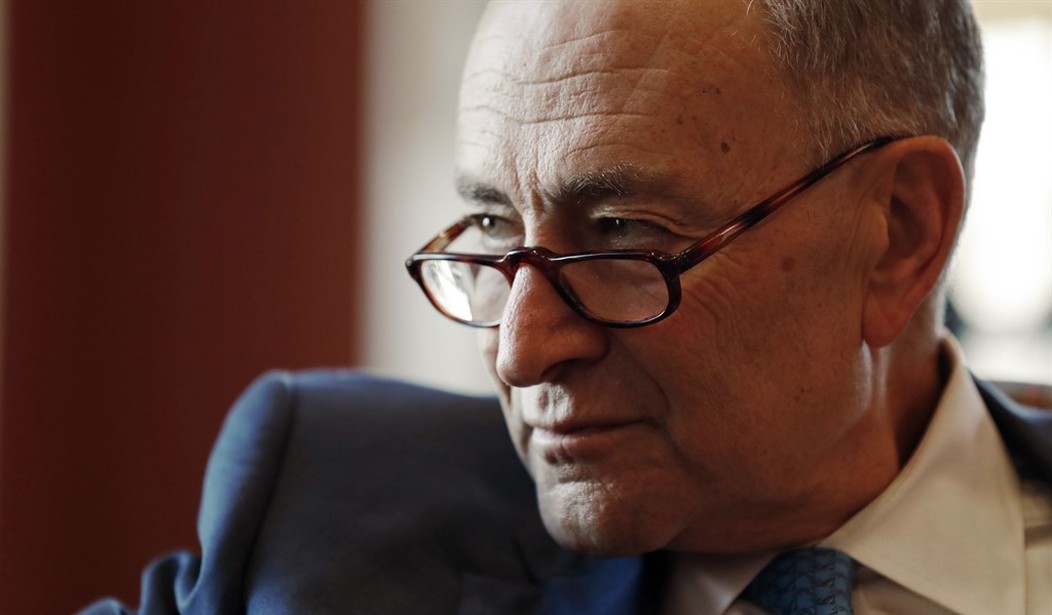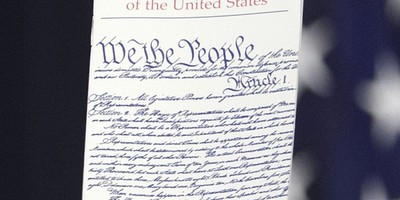WASHINGTON - President-elect Donald Trump has a big agenda, with many moving parts, that should keep the Congress busy for the next four years.
Under normal circumstances, when Republicans control the White House and both houses of Congress, one would expect swift approval of the president's chief proposals along straight party lines.
But in this case, even some Democrats may be lining up behind a few of Trump's big spending initiatives. More on this in a moment.
To be sure, Republican lawmakers are chomping at the bit to cut income tax rates and simplify our dysfunctional tax code, and that will surely be one of the earliest pieces of legislation they will send to him next year.
It may not be exactly what he has proposed. For one thing, his plan does not make any attempt to be revenue neutral by eliminating a mountain of tax breaks, loopholes and corporate welfare -- a core element in the GOP's long-stalled legislation.
But in the end, with some strategic compromises here and there, it's likely to meet with Trump's approval and his signature, to fulfill his promise to strengthen our economy and get the Great American Jobs Machine running at full throttle.
The critical element behind the GOP's tax cuts can't be overstated, and no one understands this more than our nation's future job creators, businesses large and small, and millions of investors.
Many of them have been sitting on the sidelines and holding back investment capital for the past eight years in the Age of Uncertainty, as Barack Obama kept threatening to raise taxes on anyone who made too much money.
The result has been an underperforming two percent growth economy in need of a transfusion of capital that Trump and the Republicans are going to provide when he takes office in January.
Recommended
We saw the first wave of expectation of stronger growth when the Dow broke through the 19,000 mark for the first time in its history this week, driven by business investors who piled back into the market.
But Trump has another card to play in the growth game that he thinks will strengthen the economy: spending $1 trillion on rebuilding the nation's decaying infrastructure.
If this proposal sounds familiar, it's what Obama spent in his first years to grow the economy and produce jobs. It was a humiliating failure. The economy remained weak and is still "in recovery" years later.
But Trump's huge infrastructure plan is likely to draw significant support from big spending Democrats, though a potentially tepid response from Republicans who will most likely cut the bill down to size.
Trump naively thinks he can deal with incoming Senate Minority Leader Charles Schumer, a fellow New Yorker, and the two are said to have spoken several times since the election.
"I have always had a good relationship with Chuck Schumer. He is far smarter than Harry R [Reid] and has the ability to get things done. Good news!" Trump tweeted earlier this week.
Schumer didn't return the compliment. "We will work with President Trump when he agrees with our positions," he told the Washington Post last week.
"But "when he goes against our values and our positions, we'll fight him with everything we have," he said.
But the rest of Trump's broad agenda remains a work in progress.
Filling the Supreme Court vacancy since Justice Antonin Scalia's death will be an early priority and a major test of Trump's presidential judgement.
He has already submitted a list of 21 judicial prospects from which he has pledged to pick his nominee, and it has won general approval from most Senate Republicans.
The Supreme Court will likely remain in conservative hands, at least throughout Trump's presidency.
Energy policy will be another slam dunk for the GOP, with the rapid approval of the long-stalled Keystone XL pipeline, and reversing the Democrats' "war on coal."
His remaining agenda, however, could turn out to be a hornets' nest of fierce political battles, from immigration reform to free trade policies.
Repealing and replacing the Obamacare law with a far more affordable, market-oriented plan is likely to happen, too, but not without an all-out fight from the Democrats.
But the GOP has a major political advantage over the Democrats that in some cases could result in more than a few of them crossing the aisle to support GOP initiatives.
In the 2018 midterm elections, 25 of the 48 Democrats in the Senate will face re-election, compared to only eight Republicans.
Ten of these Democrats represent states that Trump won on Election Day.
This means Senate Majority Leader Mitch McConnell, a skillful political deal maker, may be able to persuade some vulnerable Democrats to side with the Republicans on a number of critical legislative issues.
One of five or so Democrats who face tough re-election races is Joe Manchin III of West Virginia, a swing state that Trump won.
"Manchin sounds especially eager to cooperate with the new Republican president," the Washington Post reported this week. Here's what he said:
"If President-elect Trump comes with good policies, I'm going to be 1,000 percent behind him. Okay? Maybe the rest of my caucus will not, but I'm going to find a pathway forward."
The bottom line is that Trump is going to get his way on a lot more issues than anyone expected, with the help of his party's establishment leadership, the very people that he often criticized and insulted.
And maybe with the help of a few Democrats, to boot.

























Join the conversation as a VIP Member